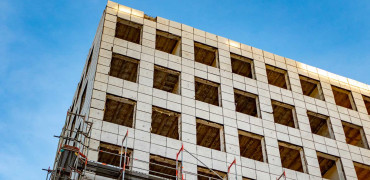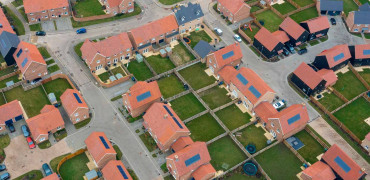So in a tumultuous few weeks, Elizabeth Truss has been anointed by the Conservative Party as our new leader, and we have lost Queen Elizabeth.
Truss is however forced to get on with tackling the huge challenges before her – having arrived on a ticket based around a tax-cutting agenda, hoped to make the UK feel less panicky as we enter a genuine fuel crisis.
The word crisis has been greatly overused in recent years, but it feels like with the possibility of ‘normal’ people facing £5K bills, we are in for something which deserves the moniker.
She has committed to freeze the cap on bills for two years at £2,500, but this will be a stretch for many households.
Will she eventually tear up, or drastically revise, our legal net zero 2050 commitment
Drilling and fracking
Truss wants to reduce the price of gas by using our own resources, including more North Sea drilling, and fracking.
Commentators have warned that regardless of the implicit risks, this severely endangers our net zero objectives, as it encourages people to use more, or at least not focus so hard on using less.
She has also given strong signs that she isn’t interested in a no-compromise approach to hitting green objectives.
Storing up debt
By borrowing more to fund these moves rather than risk tax cuts, she is storing up yet more debt for our children’s children to bear.
At the same time, the legacy of taking ‘our foot off the gas’ on climate change will be an even greater burden for a world that’s heating up.
The irresponsibility of such a strategy, behind a fanfare of strident promises of inevitable growth despite the global maelstrom, is shocking.
Green levies are blamed
Truss wants to repeal the green levies placed on big business to help them tackle the soaring energy bills and bring bigger profits, but also to protect industries like British steel production against overseas threats.
Will she eventually go the whole hog and try and tear up, or drastically revise, our legal net zero 2050 commitment.
She’d face an interminable battle to remove the legislation, but for many in the industry, this ‘growth-first’ rhetoric presents a danger worthy of the fight.
The PM has said she won’t renege on the net zero promise, but at the same time she wants to stop the spread of solar farms on agricultural land, when solar is probably the cheapest and most reliable form of generating power.
The debate on the safety and sustainability of fracking as a solution is as split as the subterranean shale rocks which have to be dramatically impacted to release the gas.
A legal obligation
Arguably Theresa May’s one achievement when in power, the legal net zero obligation, could be at risk from hard-right Tories like David Frost and Steve Baker, as well as ‘luminaries’ like Nigel Farage, who are blaming the UK’s energy price rises on the net zero target.
This is almost insulting to the people suffering in Ukraine, with the Russians’ continued manoeuvres self-evidently a huge part of the price hike, as well as macro-economic forces in the global energy market.
This is still the UK’s year of stewardship of the UN’s carbon agenda, post-COP26.
Please let’s not see Liz Truss (and her new climate change-sceptic business department cohort, Jacob Rees-Mogg) end it with a pathetic retreat away from our admirably world-leading commitments.
A crucial set of findings
Apart from everything else, these have done so much to galvanise the UK’s construction industry to pursue realistic and affordable solutions.
The new PM has appointed former Energy Minister Chris Skidmore (a known environmentally-aware Tory), to report by the end of 2022 on how driving towards net zero can deliver ‘business benefits’ as well, and isn’t just a cost.
This is going to be an interesting, and probably crucial set of findings.
James Parker is editor of Architect’s DataFile and Housebuilder & Developer




